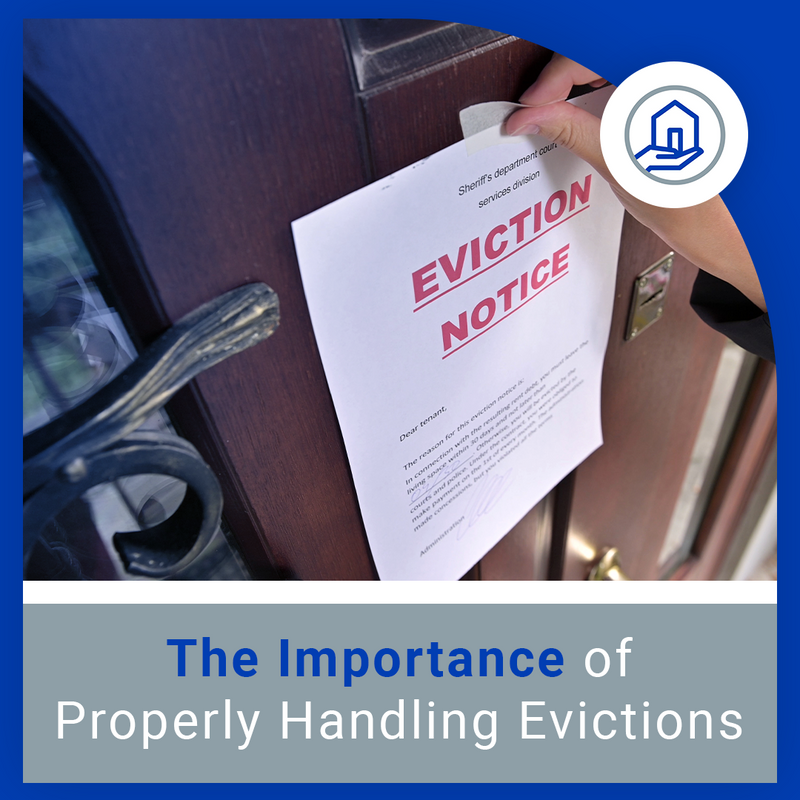As a property owner or manager, dealing with evictions is a necessary part of the job. While it’s never an easy or pleasant experience, it’s important to handle evictions properly to avoid potential legal issues and to protect your property and tenants.
One of the most important aspects of handling evictions is to ensure that all legal requirements are met. This includes providing proper notice to the tenant, following the proper eviction procedures for your state or local jurisdiction, and ensuring that all documentation is complete and accurate.
When it comes to providing notice to a tenant, there are different types of notices that may be required depending on the reason for eviction. For example, if a tenant has failed to pay rent, a landlord may be required to provide a pay or quit notice, which gives the tenant a certain amount of time to either pay the rent or vacate the property. If a tenant has violated the terms of the lease, the landlord may be required to provide a cure or quit notice, which gives the tenant a certain amount of time to either fix the violation or vacate the property. If the tenant fails to comply with the notice, the landlord can then file for eviction in court.
It’s important to note that there are specific procedures that must be followed when filing for eviction. In most cases, the landlord must file a complaint with the court and serve the tenant with a summons and complaint. The tenant then has a certain amount of time to respond to the complaint. If the tenant fails to respond or appears in court and loses the case, the court may issue an order for the tenant to vacate the property.
It’s also important to ensure that all documentation related to the eviction is complete and accurate. This can include lease agreements, notices, and any court filings. Keeping detailed records can help protect the landlord in the event of a legal dispute.
In addition to following legal requirements, it’s also important to communicate clearly and professionally with the tenant throughout the process. This can help avoid misunderstandings and potential conflicts, and it can also make the process less stressful for everyone involved.
One way to facilitate clear communication is to provide the tenant with a written notice of eviction. This notice should include the reason for eviction, the date by which the tenant must vacate the property, and any other relevant information. It’s important to keep a copy of the notice for your records.
It’s also a good idea to discuss the eviction with the tenant in person or over the phone. This can help ensure that the tenant understands the reason for the eviction and what they need to do to comply with the notice. It can also provide an opportunity for the landlord and tenant to discuss any potential issues or concerns related to the eviction.
Another important consideration when handling evictions is to ensure that the property is properly secured after the tenant has vacated. This can include changing the locks, inspecting the property for damage, and cleaning and repairing any damage that may have occurred.
If the tenant leaves personal property behind, the landlord may be required to store the property for a certain period of time before disposing of it. The landlord should also provide the tenant with notice that their property has been left behind and how to retrieve it.
It’s important to note that eviction can be a time-consuming and costly process, and it’s not always the best solution for every situation. In some cases, it may be possible to resolve issues with the tenant through other means, such as mediation or negotiation. It’s important to consider all options before pursuing eviction.
In conclusion, proper handling of evictions is an essential part of property management. It is essential to follow the correct legal procedures, including giving proper notice to tenants, filing the correct documents, and attending court hearings. By working with an experienced property management company, you can ensure that your evictions are handled efficiently and effectively, minimizing the impact on your rental property and your business. Remember to approach eviction as a last resort and try to work with tenants to resolve any issues before taking legal action. With the right approach and guidance, you can navigate the eviction process smoothly and protect your investment property for years to come.
If you need assistance with handling evictions or other property management services, contact Property Care today for a consultation. Our team of experienced professionals is here to help you manage your rental property efficiently and effectively.

